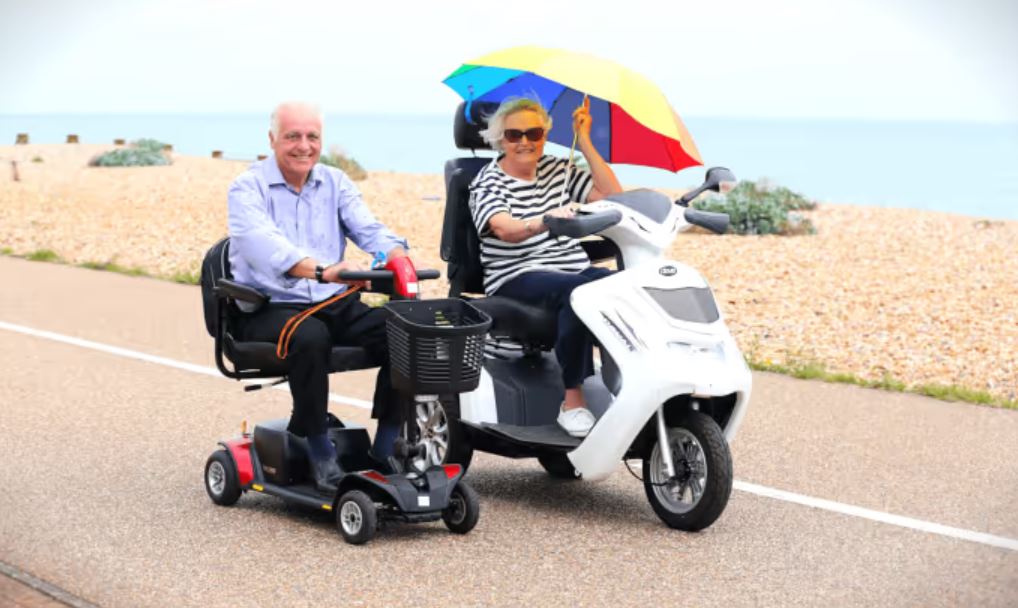Cycling at the Olympics: a brief history
August 4, 2016

Friday 5th August will mark the start of the 2016 Summers Olympic games in Rio de Janeiro, a festival of sport during which 11,000 athletes from 206 countries will compete in 306 events across 28 different sports.
The inaugural Olympic games of the modern era held in Athens in 1896 featured just 43 events across 9 different sports. Cyclists across the globe will be proud to know that the bicycle was present that year and at every summer Olympics since.
In the 1820s, German inventor Karl von Drais unveiled his Laufmaschine (running machine), later known as the velocipede, which paved the way for several decades of engineering and refinement of the concept of a human-powered, two wheeled mode of transport. The iconic penny farthing bicycle was of course a product of this age.
By 1863, rotary cranks and pedals had been added to the design, and by the 1870s the bicycle had been refined to the point that it was being used for racing. Indoor cycling events were held on wooden tracks, not too dissimilar from modern day velodromes, and the spectacle began to attract crowds. By the time the Athens Olympics came around in 1896, the stage was set for cycling to become a major international sport.

The first Olympics saw cyclists compete in six races: one road race won by Greek Aristidis Konstantinidis, and five track events dominated by the French, with Paul Masson taking home three gold medals. Events were well attended, and there was no doubting the popularity of cycling as a competitive sport.

Cycling’s Olympic presence remained steady until Stockholm 1912, where only one road time trial was contested. The Swedish Olympic Committee actually attempted to remove cycling from the games altogether, for fear of inadequate road conditions and infrastructure, as well as the fact that Sweden’s only velodrome had recently been demolished to make way for a brand new Olympic stadium. Ever the advocates of cycling, the British Olympic Committee were outraged and demanded that at least one road race be included.
https://www.youtube.com/watch?v=8cK2WxEE5Ng
The 1936 Olympics were held in Berlin amidst the increasing threat of Nazi Germany. Filmmaker Leni Rifenstahl, who later became a key propagandist for the Nazis, was commissioned by the German Olympic Committee to document the games and produce a feature film which would be titled Olympia. The fiercely competed mens' 100 km road race finished neck-and-neck between Frenchmen Guy Lapebie and Robert Charpentier, with the latter winning by the narrow margin of 0.2 seconds. When Olympia was screened two years later, Lapebie was convinced that the footage showed Charpentier pulling his teammate back by his shorts as they approached the finish line, which allowed him to overtake Lapebie and steal the win. Nothing ever came of the accusation, though this may very well have marked the first instance of replay in sport being used to contest a result.
https://www.youtube.com/watch?v=mZBY8Z25KF0
The Munich games in 1972 saw the last ever men’s tandem cycle race, the event’s popularity having dwindled despite it featuring every year since 1906. Given today’s global interest in weird and wonderful bicycles and cycling events (look no further than the World Naked Bike Ride or the Brompton World Championships) there may be an argument for bringing it back. Sadly, the 1972 Munich Summer Olympics will mainly be remembered for the massacre carried out by terrorist group Black September, which resulted in the deaths of eleven Israeli Olympic team members.
Women were first allowed to compete in the 1900 Paris Olympics, but it wasn’t until the 1984 games in Los Angeles that we saw the first ever womens' cycling event, which was an individual road race. On what was an historic day for female cyclists worldwide, the USA’s Connie Carpenter-Phinney took gold by utilising an impressive bike-throwing technique right at the finish to beat fellow American Rebecca Twigg by a matter of inches. You can watch the entire race here.

The Barcelona games in 1992 saw Great Britain take home their first gold medal in cycling in 72 years, where a 23-year-old Chris Boardman stormed to a winning finish and set a new world record in the individual pursuit. He rode the revolutionary and iconic Lotus 108 time-trial bicycle, designed by legendary bike designer Mike Burrows. Carbon fibre bikes had previously been banned in Olympic cycling, but following a change in rules in 1990 Burrows engineered a bike which was dramatically lighter and more aerodynamic than its steel framed predecessors. This ground-breaking new design coupled with Boardman’s fitness and determination brought home the gold for Great Britain.
The turn of the century saw new forms of cycling ascend to Olympic status. Mountain biking made its debut at the 1996 games in Atlanta, with both men and women competing in individual cross-country events. 12 years later, BMX racing was introduced at the Beijing Olympics, which saw Latvia’s Māris Štrombergs and France’s Anne-Caroline Chausson take gold medals in thrilling high speed, gravity defying races.
Cycling was unquestionably a standout event at the London 2012 Olympics, and a testament to the sport’s modern popularity, with road events showcasing London’s iconic streets and landmarks, and the spectacular Olympic velodrome playing host to a wide range of well attended events. The Great Britain team did their capital proud, and dominated the medal with eight golds, two silvers and two bronze. The star of the show was undoubtedly Sir Bradley Wiggins, who cemented his reputation as the face of British cycling by emphatically winning the men’s time trial, having just won the Tour de France the previous month. Fellow Brit Victoria Pendleton also made the most of her Olympic swan song by winning gold in the women’s keirin.
This year’s Olympic games in Rio boasts an impressive schedule of cycling, sure to set any velophile’s heart racing. Spaniard Alejandro Valverde is a favourite for the men’s road race, but many Brits will hope that homegrown hero Chris Froome, fresh from his recent Tour de France win, will finish first on the day. Meanwhile Anne van der Breggen of the Netherlands and Britain’s Lizzie Armitstead are joint favourites for the women’s road race, as are the Great Britain women’s team for their pursuit. There’s no doubt about it - the stage is set for another great Olympics for British cycling.
Cycle insurance that covers racing as standard
If you are a budding competitive cyclist, you’re no doubt fearless, but you’ll still want cover against the risks posed to you and your bike. ETA Cycle Insurance covers non-professional racing and triathlon events as standard – this means cover against damage to your bike, to other people or to yourself. For triathletes, your bike is also covered against theft when it is left in the transition area. The bike does not need to be locked while it is in the transition areas as long as the area is supervised by a marshal (which is usually the case).
The ethical choice
The ETA was established in 1990 as an ethical provider of green, reliable travel services. Over 30 years on, we continue to offer cycle insurance , breakdown cover and mobility scooter insurance while putting concern for the environment at the heart of all we do.
The Good Shopping Guide judges us to be the UK’s most ethical provider.
{{cta-cycling}}

Information correct at time of publication.







